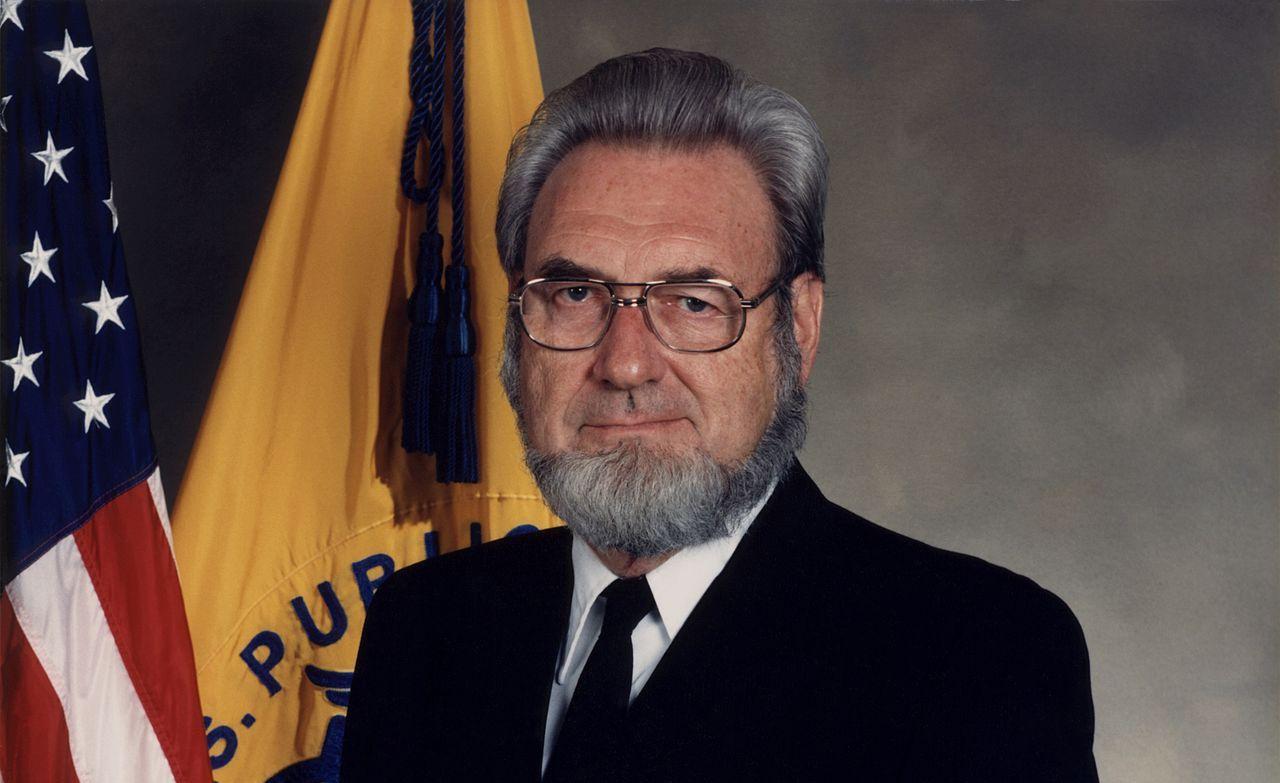
A colorful figure whose appearance and demeanor gave the impression that he could helm a Civil War fleet, Dr. C. Everett Koop was the most recognized surgeon general of the 20th century. In 1982, Koop was appointed by President Reagan to serve as the Surgeon General of the U.S. During his term, which lasted until 1989, Koop transformed the position from figurehead to active leadership role by fixing America's attention on the then-emerging disease known as AIDS, and by railing against smoking. Prior to his tenure as "America's Family Doctor," Koop was surgeon-in-chief for more than 30 years at The Children's Hospital of Philadelphia. A medical innovator, he pioneered surgery on newborns and successfully separated three sets of conjoined twins. Additionally, he won national acclaim by reconstructing the chest of a baby born with its heart outside its body. The recipient of numerous honors and awards, including 41 honorary doctorates, Koop was also a prolific author and wrote more than 200 articles and books on the practice of medicine and surgery, biomedical ethics, and health policy. In 1995, President Clinton awarded Koop the Presidential Medal of Freedom.
After completing a year-long internship at Pennsylvania Hospital in 1942, Koop (who was already an MD) went on to pursue his postgraduate training at the University of Pennsylvania School of Medicine and the Graduate School of Medicine at the University of Pennsylvania. With so many of the surgical staff gone to serve in the military during WWII, there was a large amount of work to be completed by the surgical residents, and Koop proved to be an unusually skilled and energetic one. In addition to clinical duties, Koop also did much of the work on a project assigned to UPenn by the War Department to study the use of liquid gelatin as a substitute for blood plasma for the treatment of shock in battlefield casualties. “I took to that investigational work very readily,” recalled Koop. “I was my own guinea pig. I would operate after having lost 1,000 ccs of blood and taken 500 ccs of gelatin, and then recorded all my vital signs. I have probably taken my body weight in gelatin, intravenously.” In fact, Koop wrote his thesis on this research on blood substitutes for the military, which earned him a Doctor of Science in Medicine from the Graduate School of Medicine at the University of Pennsylvania in 1947.
Continuing his work within medical education, in 1959 Koop was named professor of pediatric surgery at the University of Pennsylvania’s School of Medicine. This achievement was followed up in 1971 when the internationally renowned surgeon was named professor of pediatrics at the University of Pennsylvania School of Medicine. Today, his legacy as a tireless campaigner for public health and as a medical pioneer continues to honor the reputation of his alma mater.
